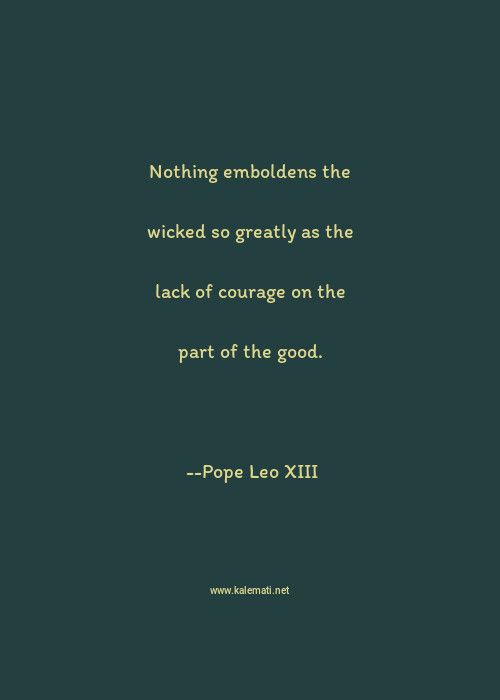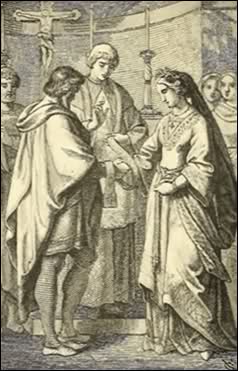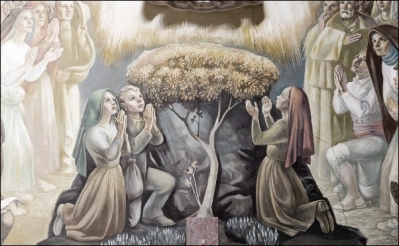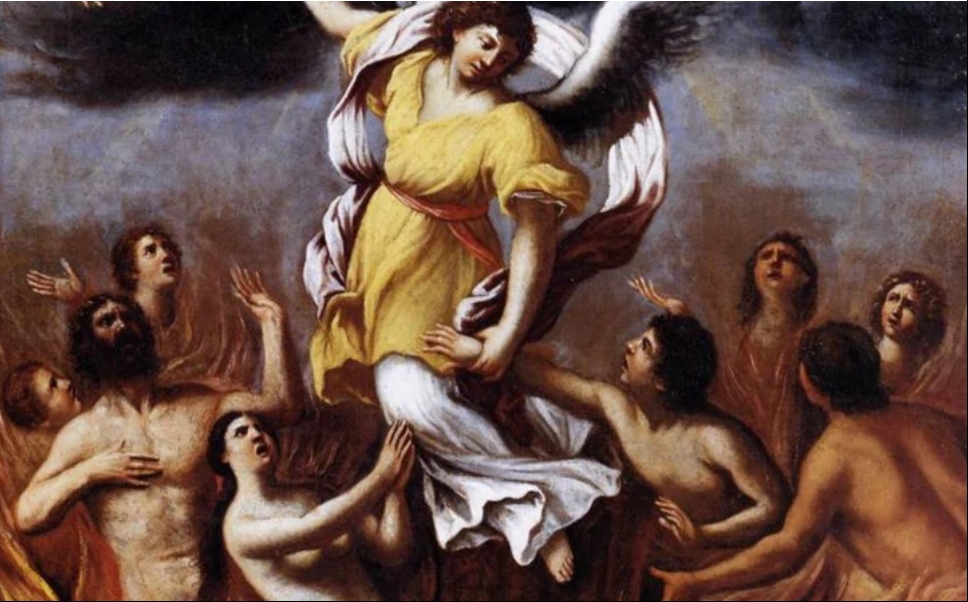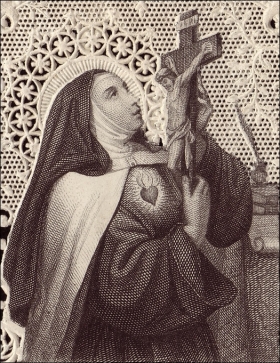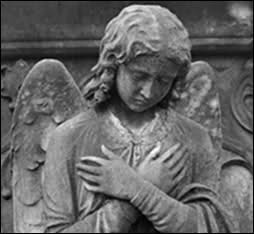At the Crossroads

No people will tamely surrender their liberties, nor can any be easily subdued, when knowledge is diffused and virtue is preserved. On the contrary, when people are universally ignorant, and debauched in their manners, they will sink under their own weight without the aid of foreign invaders. -Samuel Adams
Red or blue, have or have not, we all meet today at the crossroads of state and freedom. These roads have not been, and will never be congruent. Will they now tear America apart as they diverge into the horizon? We must take this time to understand and wisely discern which of our prospective leaders accept our natural freedom to prosper and which will legislate our servitude.
One camp peddles an alluring vision that clutches at our need, the other a noble and ageless ideal that fades like a dream under derelict custodians, while it is asserted that traditional principles are but shades and shadows. The truth is that this “alluring vision” is revealed as a political nosferatu, and the purported ghosts of old are as alive as every citizen who believes that the spirit of freedom is the beating heart of the American constitutional republic.
First, let’s look the state, or more specifically, the socialist state.
In 1848, Alexis de Tocqueville described the enduring traits of the socialist bête noir that has again awakened in our time to feed on our faltering republic.
He asked his fellow French citizens 162 years ago, “I must know, the National Assembly must know, all of France must know — is the February Revolution a socialist revolution or is it not?” He continues, “It is not my intention to examine here the different systems which can all be categorized as socialist. I want only to attempt to uncover those characteristics which are common to all of them and to see if the February Revolution can be said to have exhibited those traits.”
Now, the first characteristic of all socialist ideologies is, I believe, an incessant, vigorous, and extreme appeal to the material passions of man. Thus, some have said, “… man must be paid, not according to his merit, but according to his need,” while, finally, they have told us here that the object of the February Revolution — of socialism — is to procure unlimited wealth for all.
A second trait, always present, is an attack, either direct or indirect, on the principle of private property. From the first socialist who said, fifty years ago, that “property is the origin of all the ills of the world” to the socialist who spoke from this podium and who, less charitable than the first, passing from property to the property-holder, exclaimed that “property is theft,” all socialists — all, I insist — attack, either in a direct or indirect manner, private property.
A third and final trait — one which, in my eyes, best describes socialists of all schools and shades — is a profound opposition to personal liberty and a scorn for individual reason, a complete contempt for the individual. They unceasingly attempt to mutilate, to curtail, to obstruct personal freedom in any and all ways. They hold that not only must the State act as the director of society, but further, it must be master of each man, and not only master, but keeper and trainer. For fear of allowing him to err, the State must place itself forever by his side, above him, around him, better to guide him, to maintain him — in a word, to confine him. They call, in fact, for the forfeiture, to a greater or lesser degree, of human liberty, to the point where, were I to attempt to sum up what socialism is, I would say that it is simply a new system of serfdom.
There is nothing in the Revolution which forces the State to substitute itself in the place of the individual’s foresight and caution, in the place of the market, of individual integrity. There is nothing in it which authorizes the State to meddle in the affairs of industry or to impose its rules on it, to tyrannize over the individual in order to better govern him, or, as it is insolently claimed, to “save him from himself.”
We must now ask ourselves the same questions and make the same observations regarding the American Revolution. Was it ever supposed to be the socialist one now looming over us?
For the observant, it is clear that our government is now defined by these same attributes — wealth for all, state ownership and regulation of business (aka “state capitalism”), scorn for individual liberty and property — the fruits of our labor, particularly for those deemed “rich” — in a bureaucratic nanny-state where czar after czar is lined up to save us from ourselves through authoritarian and unconstitutional regulation.
Despite many historical examples and current news of failed socialist states, this generation of “progressive” elite believe that they are finally the chosen ones who will invoke the success of their cause, oblivious that they are chasing a will o’ the wisp that has lured them (and America) deep into a quagmire of economic decay, cultural dissolution, and possibly to their stated plan for liquidating those Americans who bitterly cling to the ideals in the U.S. Constitution.
And now the answer, the crux of freedom — the individual.
In her illuminating book, The Discovery of Freedom, Rose Wilder Lane writes, “The American Revolution had no leader. Hundreds of thousands of men and women who lived and died unknown to anyone but their neighbors, and now are completely forgotten, began the third attempt to create conditions in which human beings can use their natural freedom.
This fact is the hope of the world. For only unknown individuals can create and maintain conditions in which men can act freely, conditions in which human energy can operate to improve the human world. Only an individual who recognizes that his self-controlling responsibility is a condition of human life, and fully accepts the responsibility of a creator of the human world, can protect human rights in the infinite complexity of men’s relationships with each other. Only this individual protection of all men’s rights can keep their natural freedom operating on this earth.
Living men and women create the human world. Every man is responsible for the stupidity, the cruelty, the injustice, the wrongs of which he complains. Let him take the beam from his own eye. Have I never been stupid, have I never committed a cruelty, an injustice, a wrong against another person?
If we can understand and live this idea, the pack of charlatan saviors who have led us astray will fade in influence, to be replaced not by more authorities, experts, or elites, but by citizens who will step forward, do their duty, and then be strong enough to surrender power’s corrupting addiction. It is these we must choose.
Tocqueville’s Critique of Socialism (1848)
http://www.americanthinker.com/2010/10/at_the_crossroad.html
“I have seen the ‘miracle of the sun,’ this is the pure truth.” -Pius XII

According to his own testimony, the Pope who declared the dogma of the Assumption saw the “miracle of the sun” four times.
This information is confirmed by a handwritten, unpublished note from Pope Pius XII, which is part of the “Pius XII: The Man and the Pontificate” display.
A commissioner of the display and a Vatican reporter for the Italian daily Il Giornale, Andrea Tornielli, explained to ZENIT that the note was found in the Pacelli family archives. It describes the “miracle of the sun,” an episode that until today had only been affirmed by the indirect testimony of Cardinal Federico Tedeschini (1873-1959), who recounted in a homily that the Holy Father had seen the miracle.
Pius XII wrote, “I have seen the ‘miracle of the sun,’ this is the pure truth.”
The miracle of the sun is most known as the episode that occurred in Fatima, Portugal, on Oct. 13, 1917. According to the Fatima visionaries, Mary had said there would be a miracle that day so that people would come to believe. Thousands had gathered at the site of the visions, and the sun “danced,” reportedly drying instantaneously the rain-soaked land and spectators.
Confirming the dogma
Pius XII’s note says that he saw the miracle in the year he was to proclaim the dogma of the Assumption, 1950, while he walked in the Vatican Gardens.
He said he saw the phenomenon various times, considering it a confirmation of his plan to declare the dogma.
The papal note says that at 4 p.m. on Oct. 30, 1950, during his “habitual walk in the Vatican Gardens, reading and studying,” having arrived to the statue of Our Lady of Lourdes, “toward the top of the hill […] I was awestruck by a phenomenon that before now I had never seen.”
“The sun, which was still quite high, looked like a pale, opaque sphere, entirely surrounded by a luminous circle,” he recounted. And one could look at the sun, “without the slightest bother. There was a very light little cloud in front of it.”
The Holy Father’s note goes on to describe “the opaque sphere” that “moved outward slightly, either spinning, or moving from left to right and vice versa. But within the sphere, you could see marked movements with total clarity and without interruption.”
Pius XII said he saw the same phenomenon “the 31st of October and Nov. 1, the day of the definition of the dogma of the Assumption, and then again Nov. 8, and after that, no more.”
The Pope acknowledged that on other days at about the same hour, he tried to see if the phenomenon would be repeated, “but in vain — I couldn’t fix my gaze [on the sun] for even an instant; my eyes would be dazzled.”
Pius XII spoke about the incident with a few cardinals and close collaborators, such that Sister Pascalina Lehnert, the nun in charge of the papal apartments, declared that “Pius XII was very convinced of the reality of the extraordinary phenomenon, which he had seen on four occasions.”
Son of Our Lady
Tornielli told ZENIT that there was always a close link between the life of Eugenio Pacelli and the mystery of the Virgin Mary.
“Since childhood,” he said, “Eugenio Pacelli was devoted to Our Lady and was registered in the Congregation of the Assumption, which had a chapel close to the Church of Jesus. A devotion that seemed prophetic, since he would be precisely the one to declare the dogma of the Assumption in 1950.”
The future Pope celebrated his first Mass on April 3, 1899, at the altar of the icon of Mary “Salus Populi Romani” in the Basilica of St. Mary Major. “And then,” Tornielli continued, “Eugenio Pacelli received episcopal ordination from Pope Benedict XV in the Sistine Chapel on May 13, 1917, the day of the first apparition of the Virgin of Fatima.”
As Pope, in 1940, he approved the Fatima apparitions, and in 1942, consecrated the entire world to the Immaculate Heart of Mary.
As well, Pius XII often spoke with Sister Lucia, the visionary of Fatima, and he asked her to transcribe the messages she received from the Virgin. He thus became the first Pope to know the “third secret of Fatima.”
The Stench of Appeasement

“Appeasement is throwing someone else to the crocodiles in the hopes of being eaten last.”
Winston Churchill
Suppose there were a worldwide movement which openly proclaimed its goal of taking over in your country and every country with the purpose of imposing its system on every human being on earth. Also suppose that this movement had carried out murders and terrorist attacks in your own country, that members of this group promoted violence while gaining political influence. Suppose also that is was highly unfashionable and politically incorrect to speak out against them.
I am not speaking of Islam here, but of Communism. The current wave of censorship and denial toward Islam is not a new development. It is rather a very old one. Islamophobia, like Red-Baiting, is a political term that serves the function of cutting off any discussion of the subject. It precludes any listing of the facts or debates on the issue, by declaring it to be off-limits. To raise the issue is to expose yourself as a bad person whose ideas are unacceptable for public distribution.
When George Orwell was struggling to find a publisher for Animal Farm, he was repeatedly turned down on the grounds that the book would offend the Soviet Union. One publisher wrote to Orwell that he had been dissuaded from publishing the book by an important official in the Ministry of Information (an agency that would become the Ministry of Truth in his novel, 1984) who had told him that publishing such a book would be ill-advised at this time. That official was, incidentally, a Soviet spy.
The publisher went on to say that the book might be acceptable if it applied generally to dictators, but not specifically to the USSR. Finally the publisher added, “It would be less offensive if the predominant caste in the fable were not pigs. I think the choice of pigs as the ruling caste will no doubt give offence to many people, and particularly to anyone who is a bit touchy, as undoubtedly the Russians are.”
Change around a few names and this is exactly the rejection letters that courageous books critical of Islam have received. It’s fine to make general criticisms of religious fanaticism, so long as those criticisms are universally applied, and do not offend those touchy people who religious fanaticism occasionally expresses itself in dangerous ways.
In a generally deleted preface to Animal Farm, Orwell wrote, “The sinister fact about literary censorship in England is that it is largely voluntary. Unpopular ideas can be silenced, and inconvenient facts kept dark, without the need for any official ban. Anyone who has lived long in a foreign country will know of instances of sensational items of news — being kept right out of the British press, not because the Government intervened but because of a general tacit agreement that ‘it wouldn’t do’ to mention that particular fact.”
There are quite a few sensational facts and news items that are kept out or minimized in our own media because it would not do to mention them. There are rarely any government officials dictating this censorship, certainly in the United States there are no legal codes that make it mandatory, but this censorship is voluntary. It consists of people censoring themselves, of publications censoring people out of fear of violence, of publishers who feel that this is an ill-advised time to stir up tensions and of a larger body of liberal thinkers who feel that we should sympathize with Islam and ignore any of its violent and supremacist activities.
“At this moment what is demanded by the prevailing orthodoxy is an uncritical admiration of Soviet Russia. Everyone knows this, nearly everyone acts on it. Any serious criticism of the Soviet régime, any disclosure of facts which the Soviet government would prefer to keep hidden, is next door to unprintable,” Orwell wrote in his Animal Farm preface titled, Freedom of the Press.
“Hardly anyone will print an attack on Stalin, but it is quite safe to attack Churchill… throughout five years of war, during two or three of which we were fighting for national survival, countless books, pamphlets and articles advocating a compromise peace have been published without interference… So long as the prestige of the USSR is not involved, the principle of free speech has been reasonably well upheld.”
So too we still have freedom of the speech. We are encouraged to attack our own government, though not the liberal wings of it, but it is still a safer thing to do, so long as the prestige of Islam is not involved. Only when Islam is offended, does the principle of free speech come apart.
It was always safe to attack Bush, but an attack, even on Bin Laden, was considered tacky at best. And an attack on more “moderate” figures, like Tariq Ramadan, was borderline unprintable. While it was ridiculously easy to publish an essay depicting Bush as a war-crazed chimp invading Iraq for oil, Haliburton and Christian fundamentalism, the cultural elites insisted that doing so was an act of great political courage. Meanwhile publishing an essay critical of Islamic figures was next to impossible and dangerously perilous. And those same elites treated it as a despicable abuse of freedom of speech.
The poisonous vein here goes deeper. With the rise of the Bolsheviks there was a vigorous debate over whether or not to recognize the Soviet Union. Two administrations, Wilson and Hoover, chose not to do so. Their reasoning was fairly straightforward and is best expressed in the words of Bainbridge Colby, the Secretary of State under Woodrow Wilson.
Colby was a liberal who had co-founded Roosevelt’s Progressive Party and befriended Mark Twain, nevertheless he laid out a clear rationale for extending no diplomatic recognition to the Bolshevik terrorists. “We cannot recognize, hold official relations with or give friendly reception to the agents of a government which is determined and bound to conspire against our institutions, whose diplomats will be agitators of dangerous revolt, whose spokesmen say they sign agreements with no intention of keeping them.”
That policy persisted under two administrations, including that of President Hoover, who had personal experience with the Soviet Union during the Russian relief effort which bailed out the Communists at a crucial time. It was the FDR Administration which was stuffed full of Communists that abrogated it. FDR became the first American president to directly communicate with a Soviet leader and in his first year of office he invited the Soviet Foreign Minister to Washington D.C. and recognized the Soviet Union.
To achieve that recognition, the Soviet Union pledged not to promote or harbor any groups with the aim of “the overthrow or the preparation for the overthrow of, or bringing about by force of, a change in the political or social order of the whole or any part of the United States, its territories or possessions.” This agreement was never honored in any way, shape or form.
Colby went on defending his policy until his death in 1950 as the right thing to do. And the pace of events only proved him right. The USSR used diplomatic recognition to extract aid, plant saboteurs and conduct espionage. It kept agreements only for so long as they suited it.
The pro-recognition lobby backed of diplomats, businessmen and politicians exploiting argued that only engagement would reform the Soviet Union. That same argument was still being made during the Reagan Administration which was berated for its warmongering obstructionism every time it refused to give in to Soviet demands.
We are back to that same debate today between engaging our enemies or accepting their hostility as a fact. The modern diplomatic corps is full of advocates of engagement with the Muslim Brotherhood, with the Taliban and Al-Qaeda. There isn’t anyone they won’t engage with so long as they hate the United States and seek to destroy it.
Four years of Obama has shown once again that engagement does not work. Not only doesn’t it work, it actually emboldens the enemy and allows the enemy to infiltrate deep within our societies and to corrupt our institutions. That very engagement leads to censorship in the name of friendship. It leads to news articles and books that cannot be printed because they might sabotage the chances for peace.
The hope for peace is the greatest force of censorship there is. Once engagement is passed off as a fairy that you must believe in lest she will die, then censorship becomes absolutely mandatory to keep peace alive. If a book critical of Communism might offend the USSR then it is best not to print it or to water it down. If Muslims riot over cartoons of Mohammed, then it is a civic duty not to print them in the name of peace and understanding.
When we marvel at the Dhimmism in modern cultural life, at the extent to which Islamic viewpoints are presented unchallenged as the establishment devotes its fullest efforts to inveighing against any opposing views, this too has its red precedents.
“The servility with which the greater part of the English intelligentsia have swallowed and repeated Russian propaganda from 1941 onwards would be quite astounding,” Orwell wrote. “On one controversial issue after another the Russian viewpoint has been accepted without examination and then publicised with complete disregard to historical truth or intellectual decency.”
Modern day examples of this surround us on all sides and as a doctor of totalitarianism, Orwell aptly diagnosed the corruption of the elites and their descent into totalitarian expediency.
“If the intellectual liberty which without a doubt has been one of the distinguishing marks of western civilisation means anything at all, it means that everyone shall have the right to say and to print what he believes to be the truth… It is only, or at any rate it is chiefly, the literary and scientific intelligentsia, the very people who ought to be the guardians of liberty, who are beginning to despise it, in theory as well as in practice.
“The word ancient emphasises the fact that intellectual freedom is a deep-rooted tradition without which our characteristic western culture could only doubtfully exist. From that tradition many of our intellectuals arc visibly turning away. They have accepted the principle that a book should be published or suppressed, praised or damned, not on its merits but according to political expediency.”
That principle is now the primary one on the left. This totalitarian cowardice that Orwell inveighed against has been elevated to an unchallenged moral standard. Animal Farm is widely reprinted, but without Orwell’s preface. Like 1984, a book whose composition effectively killed him, it has been treated according to the original plan of that publisher, stripping away most acknowledgements that it is a vicious satire of Soviet Communism, rather than a generic commentary on tyranny.
Orwell’s preface, so rarely published, concludes with his motivation for writing it, “It is the liberals who fear liberty and the intellectuals who want to do dirt on the intellect.”


